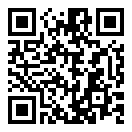Adaptation skills in the family according to Islam
Article data in English (انگلیسی)
Vol.1, No.1, Fall & Winter 2014-15
Abolfazl Sajedi / Associate Professor of Philosophy, IKI, Qum, Islamic Republic of Iran
Received: 2014/07/01- Accepted: 2014/11/20 sajedi@qabas.net
Abstract
One method for building a stable family is learning and practicing adaptation skills. In this article, we will discuss some cognitive, emotional and behavioral skills that establish congenial relationships in the family. As a cognitive skill, Islam encourages believers to be optimistic about others and even the world, and refrain from being pessimistic about others even if they see mistakes from them. Having a sense of realism is another cognitive skill which helps couples understand the reality of this world and control their expectations in family relationships. Islamic teachings also have a positive impact on human sympathy and emotion in dealing with one’s spouse and children. In the religion of Islam, a part of having true faith in God is having love for one’s spouse and children. Practicing such emotional skills as gratitude and gratefulness also have psychobehavioral effects on family life. Verbal and nonverbal behavioral skills can also lead to the following results: increase in the psychological capacity of spouses, prevention of abnormal behavior and emotional problems, a stable family with congenial relationships, and a solid basis for moral training and acquiring divine virtues.
Key Words: Adaptation skills, stable family, cognitive skills, emotional skills, behavioral skills, optimist, Pessimist, Islam





